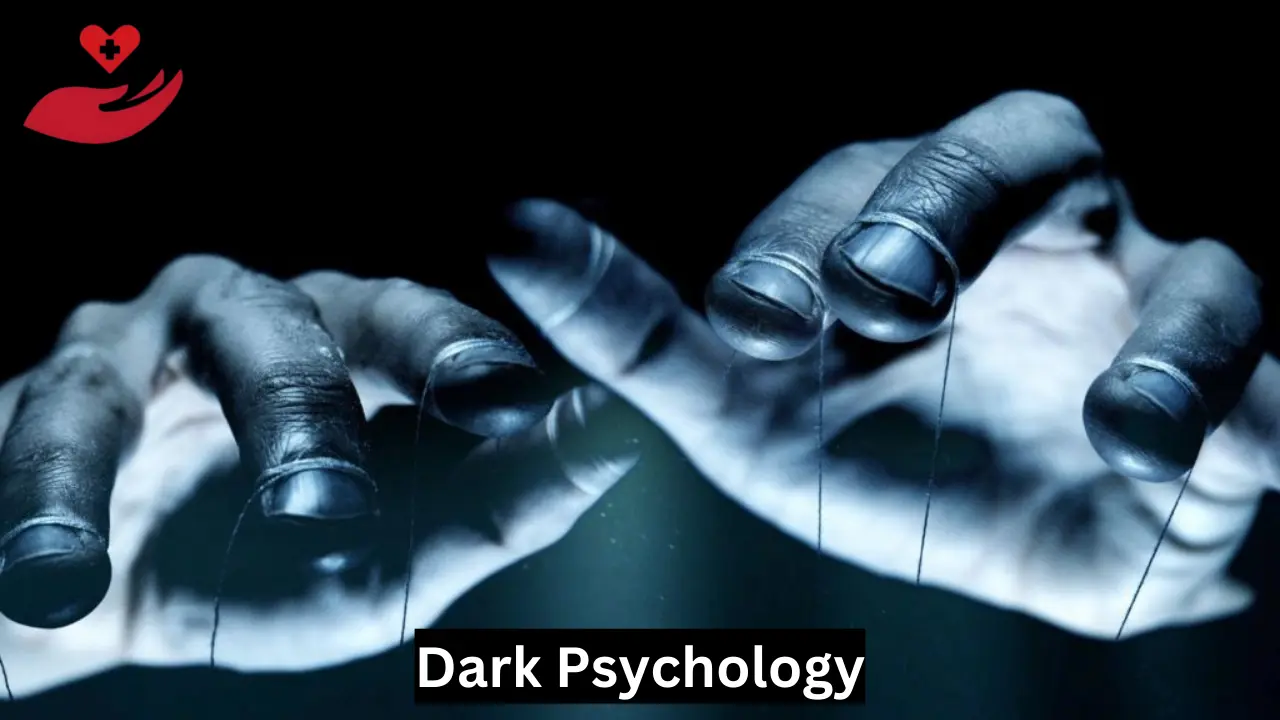Dark psychology is the study of the science behind manipulating men and emotions to achieve goals. It investigates how a group of people are using others’ emotional vulnerability, trust and fear. And this is an important subject, because it does teach you to recognize destructive behavior and protect yourself. Therefore, what is dark psychology, and how important is it today?
There’s dark psychology in dozens of fields of life, like personal relationships, marketing strategies and political campaigns. However unsettling its tactics can seem, knowing them is the best way to protect ourselves and build healthier relationships. In this article, we will learn what dark psychology is, how it works, and how we can detect and resist it in daily life.
If we learn about dark psychology, we understand what is bad and we can spot harmful behaviors, and if our relationships are based on trust, respect these and also expect it from others.
What is Dark Psychology?

The topic of Dark psychology involves psychological practice or use of psychological tactics to manipulate or control others in often morally reprehensible ways. It is based on studies from human behavior but focuses on the darker areas of interpersonal dynamics.
Key Concepts of Dark Psychology
- Behavioral Science: Dark psychology builds on research about how people respond to different situations or triggers.
- Manipulation: It involves exploiting others’ vulnerabilities, such as their emotions or trust.
- Ethical Boundaries: The field often pushes moral limits, raising questions about its acceptability.
Applications of Dark Psychology
- Advertising: Brands use tactics to influence consumer decisions subtly.
- Relationships: Emotional manipulation can lead to unhealthy interactions.
- Politics: Fear-based messaging is often employed to gain support or control.
Why Understanding Dark Psychology Matters
- Self-Protection: Awareness of manipulation tactics helps us avoid being exploited.
- Better Communication: Understanding these techniques fosters more ethical interactions.
- Empowerment: Knowledge of manipulation makes us less vulnerable to its effects.
Dark Psychology Common Manipulation Tactics
Dark psychology is based on a set of pressure or manipulation strategies to influence others by using emotional and psychological pressure techniques.
Emotional Manipulation
Gaslighting
- What It Is: Making someone question their own memories or sense of reality.
- Example: A manipulator might deny saying or doing something to confuse the victim.
- Impact: This tactic creates doubt and dependency, leaving the victim uncertain and reliant on the manipulator for clarity.
Guilt-Tripping
- What It Is: Leveraging guilt to influence someone’s actions.
- Example: Statements like, “If you cared about me, you would do this.”
- Impact: The victim feels pressured to act against their wishes to avoid guilt.
Love Bombing
- What It Is: Overwhelming someone with affection to gain control over them.
- Example: Showering someone with gifts or praise in the early stages of a relationship.
- Impact: The victim becomes emotionally reliant, making it easier for the manipulator to exert influence.
Psychological Manipulation
Persuasion
- What It Is: Influencing someone to adopt a belief or take an action.
- Example: A leader delivering emotionally charged speeches to inspire loyalty.
- Impact: This tactic can bypass logical reasoning and lead to decisions driven by emotion.
Fear Mongering
- What It Is: Using fear as a tool for control.
- Example: Threatening negative consequences to enforce compliance.
- Impact: Fear reduces resistance and makes individuals more likely to conform.
Isolation
- What It Is: Separating someone from their support system.
- Example: Discouraging someone from communicating with friends or family.
- Impact: The victim becomes more dependent on the manipulator for emotional and practical support.
Dark Psychology in Everyday Life

Dark psychology shows itself in numerous resources, including workplaces, personal relationships and the like, and social media sites. Seeing these examples can help us see manipulation and how to figure counter manipulation.
At Work
Micromanagement
- What It Is: Exercising excessive control over an employee’s tasks.
- Example: A manager constantly monitoring every minor action.
- Impact: This approach stifles creativity and lowers morale.
Corporate Pressure
- What It Is: Using psychological tactics to influence workers or customers.
- Example: Creating a fear of missing out (FOMO) to boost sales.
- Impact: These methods can lead to stress or unethical behaviors.
Workplace Bullying
- What It Is: Employing intimidation or humiliation to dominate colleagues.
- Example: Public criticism or withholding critical information.
- Impact: Such tactics cause emotional distress and reduce productivity.
In Personal Relationships
Codependency
- What It Is: Over-relying on someone emotionally.
- Example: Constantly prioritizing the manipulator’s needs over your own.
- Impact: This dynamic erodes self-esteem and limits personal growth.
Jealousy Tactics
- What It Is: Inducing jealousy to assert control.
- Example: Discussing past relationships to provoke insecurity.
- Impact: This behavior fosters mistrust and emotional instability.
Financial Control
- What It Is: Using money as a means of manipulation.
- Example: Restricting access to funds or micromanaging expenses.
- Impact: The victim’s independence and decision-making abilities are compromised.
On Social Media
Algorithm Manipulation
- What It Is: Platforms use tailored content to influence users’ behaviors.
- Example: Showing posts that align with users’ biases to increase engagement.
- Impact: This subtly shapes opinions and habits without users’ awareness.
Cyberbullying
- What It Is: Harassing or targeting individuals online.
- Example: Spreading rumors or posting derogatory comments.
- Impact: Victims often experience significant emotional and mental distress.
The Ethics of Dark Psychology

The idea of integrating dark psychology into our understanding of the universe has raised people’s biggest ethical questions regarding its outcome and moral borders.
Moral Issues
- Conflicting Perspectives: While some argue manipulation can be justified if it serves a greater good, others insist it is inherently unethical.
- Legal Challenges: Many dark psychology tactics are not illegal but can still cause significant harm.
Psychological Effects
On Victims
- Trauma: Prolonged manipulation often leaves emotional scars.
- Distrust: Victims may struggle to trust others, impacting future relationships.
On Manipulators
- Guilt: The awareness of causing harm can lead to feelings of regret.
- Isolation: Over time, manipulators may lose meaningful connections.
Raising Awareness
- Educational Efforts: Understanding dark psychology helps people defend against its tactics.
- Support Systems: Educated communities are better equipped to help victims recover and regain confidence.
Dark Psychology – How to Protect Yourself
Knowing about manipulation and learning how to resist it are the best skills that you can equip yourself with.
Recognizing Manipulation
- Behavioral Clues: Take note of sudden changes in how someone treats you.
- Emotional Red Flags: Feelings of confusion, guilt, or fear can signal manipulation.
Seeking Assistance
- Learning Resources: Books, courses, and workshops on emotional intelligence are helpful.
- Professional Support: Consulting a therapist or counselor provides valuable guidance.
Building Resilience
Emotional Intelligence
- Definition: The ability to understand and regulate your emotions.
- Benefits: It enhances self-awareness and strengthens relationships.
Assertiveness
- Definition: The confidence to express your needs clearly.
- Application: Use “I” statements and establish firm boundaries.
Support Networks
- Importance: Trusted friends and family provide perspective and encouragement.
- Action Steps: Regularly check in with your support system to stay grounded.
Using Psychology for Good
Positive Influence
- Definition: Persuading others in an ethical, constructive manner.
- Example: Promoting teamwork and healthy habits.
Helping Others Recover
- Definition: Assisting victims in overcoming manipulation.
- Example: Encouraging therapy that focuses on building resilience.
Advocacy and Education
- Definition: Raising awareness about the dangers of manipulation.
- Example: Public campaigns to educate communities.
Also See This: How Did Lil Keed Die? Know The Lil Keed Cause Of Death
Conclusion
Dark psychology exposes what selfish, psychological manipulators do, but it teaches us how to stand up to it to avoid harm. Knowing that dark psychology is a thing and how they work helps us to protect ourselves and create and maintain the healthiest relationships.
Knowledge makes us better at creating better connections and protecting against manipulation. You can use this understanding to build your well being and to help others have positive and trustworthy interactions.
FAQs
What is dark psychology?
Or, it’s the study of unethical psychological tactics used to manipulate other people.
How do I know when someone is manipulating me?
Watch for signs such as gaslight, guilt trouble, or change in behaviour.
Is persuasion always unethical?
It’s not ethical persuasion if you’re being dishonest and benefiting yourself alone.
Is dark psychology positive to use?
It’s true, some techniques applied ethically can resolve conflicts or even encourage growth.
How do I protect myself from being manipulated?
You would learn to develop emotional intelligence, set firm boundaries and have supportive relationships.
What reason is there to learn about dark psychology?
Knowledge helps protect you from harm, and strengthens healthier, more ethical interaction.








